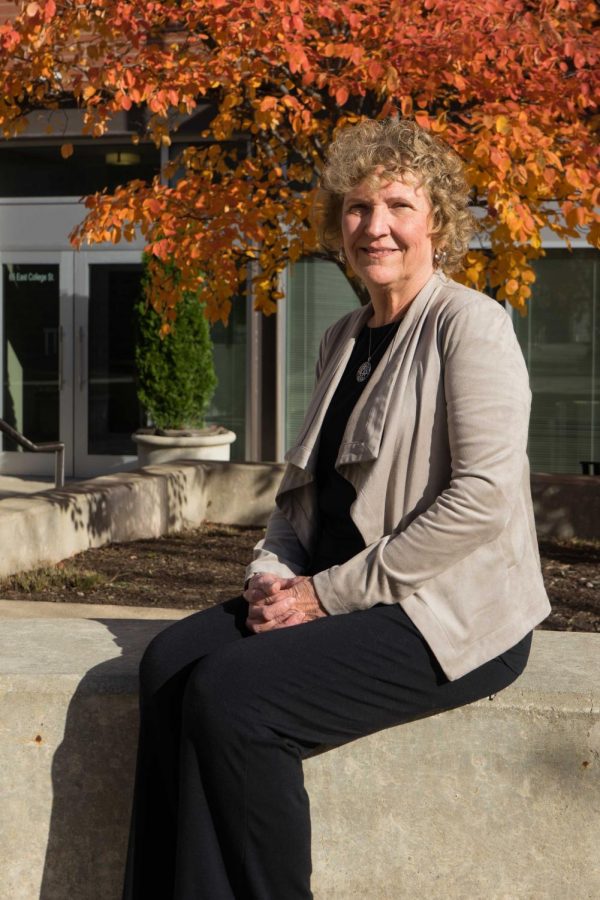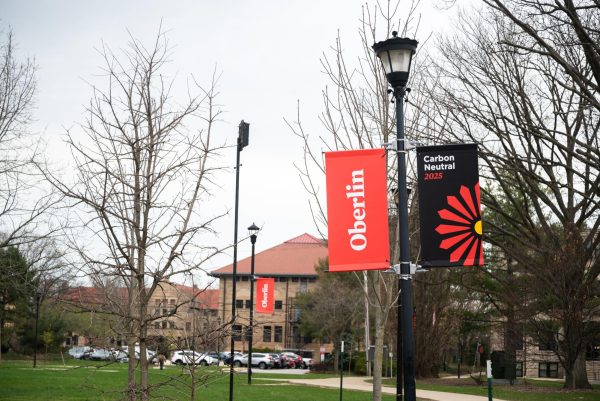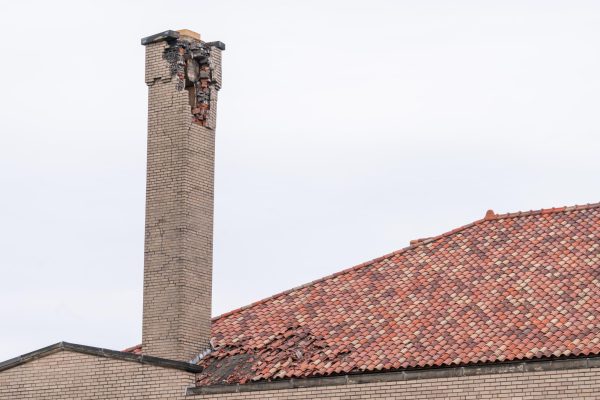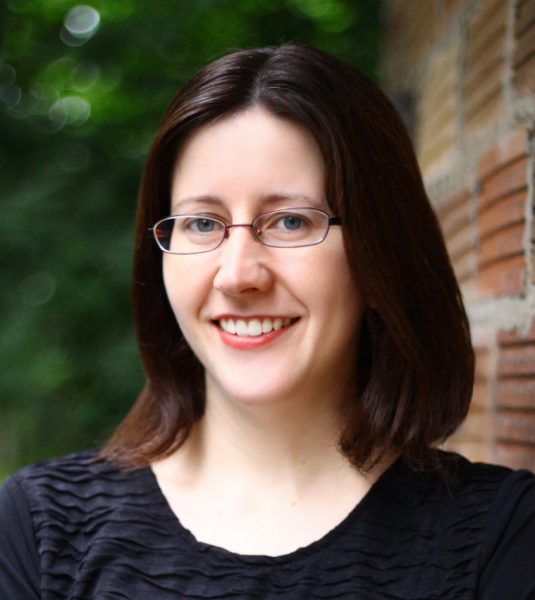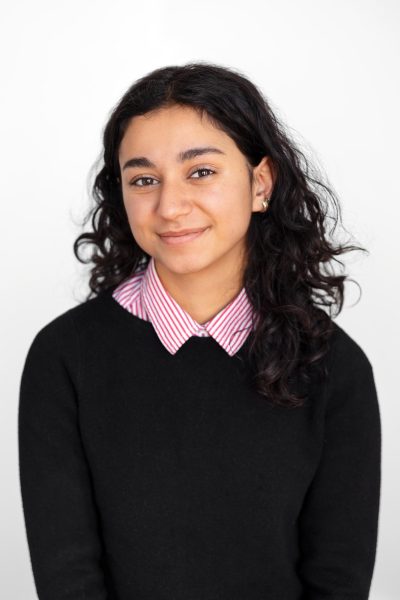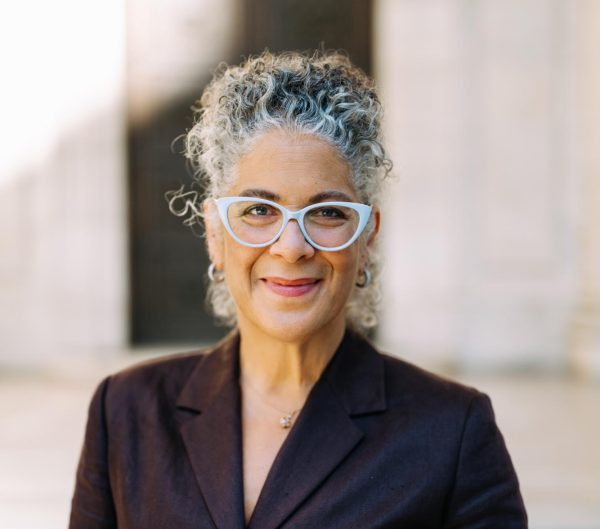OTC: Linda Slocum, Vice President Of Oberlin City Council
Photo by Bryan Rubin, Photo Editor
Linda Slocum
Linda Slocum has lived in Oberlin for 27 years and served one term as vice-president on Oberlin City Council. She graduated with a B.A. from Ursinus College and a M.A. from the University of Massachusetts before working as the Gifts Librarian & Managing Editor of Oberlin College Press for 17 years. She has been a part of the League of Women Voters, Oberlin Community Services, and Family Promise, an Interfaith Hospitality Network. She is married to Dr. Harold E. Slocum, and together they have three adult children. She was reelected to City Council in Tuesday’s election.
This interview has been edited for length and clarity.
Can you clarify how long you worked at Oberlin and where you’re originally from?
We moved here in 1990, so 27 years ago. And up until Heather won, was not a very long time, because somebody told me that after the last election I was the only one on council who was not born and raised here. But we’ve been here since [the] 1990s. I was born in Allentown, PA. Prior to moving here, we were living in Danville, PA— another small town. We decided [on] small town life. My husband’s a family physician, but when we were looking for a place to move from Danville, we realized we got used to small towns.
How did you end up on City Council?
I decided to run two years ago for the first time, even though I was retired from working at Oberlin College, because there were some communication problems on City Council. I like to think of myself as a moderating voice and a good listener. I came to my interest in politics through my many years of working with the League of Women Voters, and while I was president of the league [for] the last several years, I ended up attending a lot of things in town — being present, hearing voices, hearing sides of arguments, and that kind of thing. I also advocated for civic engagement as a league person, in voting, in all those kind of things. I thought, “Well, I could maybe do it myself, try it myself.” That’s how I came to it two years ago. There were 14 candidates, so it was kind of a whirlwind. As a newcomer, I got the highest number of votes, just as Hweather [Adelman] did last night as a newcomer. I’ve found after two years, I’ve finally figured out how to get things done, so during these next two years I really can work to be more effective than I even was the first two years. So I decided to run again, and I’m just thrilled.
What did you do at the College during your time there?
I worked in the library. I was the gifts librarian in technical services part-time, and I was managing editor of the Oberlin College Press with David Walker and David Young, the Creative Writing folks.
In your first two years on council, what would you consider to be some of your big successes or council’s big successes during that time period?
One that I’d like to think I was instrumental with just came to fruition on Monday night at our council meeting. I’m liaison to the Historical Preservation Commission, so one of the first meetings I went to when I came on council was a presentation from the Cleveland Preservation Society about their historical home improvement program. This was when I was asking questions like, “Well, they presented there. Now how do those ideas get to council?” I asked that question, and I think because of that, the Restoration Society presented to council at a council meeting. Then, luckily, Carrie Handy, the head of the planning department, picked up on it. It’s two years in the making, but we finally found a bank, and we’re going to have a low-interest loan program going for people to [rehabilitate] their homes.
With this second term on council, what are your personal plans?
One of the things I wanted to do this morning was to sit down and just start typing — so many ideas. I’ve mentioned the housing. That’s a big priority for me. The other thing is, what I started to address in the first two years and what I want to continue is this whole process of how do ideas get translated to reality, to public policy. In parcel with that is training with boards and commissions, and I’m really big on and starting to think about neighborhood involvement — having more organic participation in even just their own small neighborhoods, trying to figure out how neighborhoods can get together and to decide, “Well, do we need a bigger bench here, or do we need another playground?” Or — and this is one of my big issues — is sidewalks, which is a very contentious issue that goes back 20 years in this city. One of my goals is to get it settled in these next two years, because I think we can come to a really good settlement, but we have to sit down and have a good discussion about how we’re going to do it and how we’re going to pay for it.
There’s opportunities to work with the College. Public transportation is so big, and I think both the city and the College have that as a concern. My interest is a little bit more immediate just within the city, and that also ties within the Sustainable Reserve Fund; you buy two shuttle buses — electric shuttle buses — with Sustainable Reserve Fund money.
One of the things that we noticed throughout the City Council election season was that your name was popping up a lot in letters to the Review and that you held your office hours in Azariah’s [Cafe] and talked to students. I’m curious why interacting with College students was such a priority of yours throughout the process?
In the League of Women Voters, I was trying to register College students to vote, then we were trying to make sure College students were informed about the issues, so I always think of College students. I realized: You’re important.
In the League of Women Voters, I was trying to register College students to vote, then we were trying to make sure College students were informed about the issues, so I always think of College students. Also, because I worked at the College and had a lot of student interns and just loved working with students, I realized: You’re important. But I realized I’ve also been retired now for a number of years, so I don’t have as many contacts as I used to have. Although, I’m a coordinator for the Interface Hospitality Network, and I train students to be volunteers for that program, so I do meet some that way. I just thought I’d like to make sure that I was able to meet some and get my name out there.


